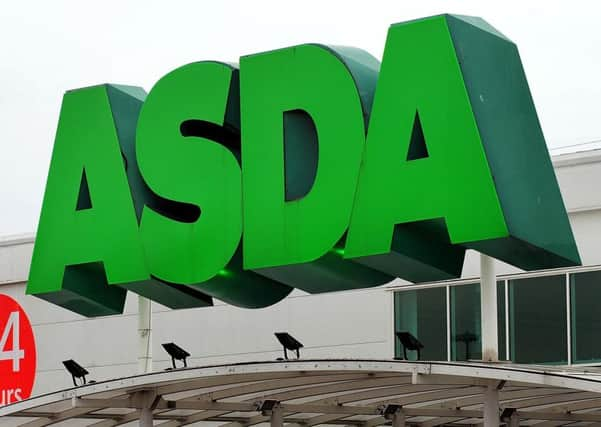Families get a big Easter break as prices fall


As the Easter Bank Holiday approaches, the Leeds-based grocer said families across the UK now have £184 a week to spend on the things they want, rather than the items they need, which is 9.2 per cent higher than this time last year.
As millions of people prepare to travel across the country to visit family and friends during the Easter Bank Holiday weekend, Asda said they will benefit from 16.6 per cent drop in the price of fuel, the largest annual fall in over 25 years.
Advertisement
Hide AdAdvertisement
Hide AdThe cost of food, which also saw a record drop falling by 3.3 per cent year-on-year last month - the steepest decline in nearly 60 years - means shoppers will be able to splash out on cut price Easter Eggs, which have seen a 10 per cent fall in prices this year.
In what is a traditionally indulgent period, consumers are also set to take advantage of falling food prices to stock up on ingredients for the traditional Easter Sunday roast dinner.
Asda said the falling cost of fuel and food meant essential item inflation fell deeper into negative territory, or deflation, for the second time this year, dropping to minus 0.3 per cent.
President and CEO of Asda, Andy Clarke, said: “This month’s tracker brings positive news that discretionary incomes continue to climb.
Advertisement
Hide AdAdvertisement
Hide Ad“It is encouraging to see that going into the Bank Holiday weekend the family budget has increased by £16 since last year and this is being supported by low prices on fuel, food and energy.
“Our customers are feeling more confident yet remain prudent by continuing to spend carefully and save where they can for a rainy day. Above all our customers are looking for reasons to be confident that their discretionary income will remain stable.”
Asda’s Income Tracker report is compiled by the Centre for Economics and Business Research (Cebr).
Cebr economist Sam Alderson said that with consumer price inflation falling to zero in February, a spell of deflation in the UK looks more likely than not in the coming months.
Advertisement
Hide AdAdvertisement
Hide Ad“The large declines in the cost of food and fuel over the last year have supported a significant boost to household spending power,” he said.
“As long as households feel confident enough to spend this windfall, deflation should be short-lived and boost, rather than dent, economic activity.”
The research showed that the falling cost of weekly essentials and further employment growth has supported the strong boost to household spending power in recent months.
Average spending power has now risen year-on-year for 17 months, which is the most sustained recovery since the Bank of England sharply cut the base rate in 2009.
Advertisement
Hide AdAdvertisement
Hide AdIncluding the effect of bonus payments, discretionary incomes rose by 8.7 per cent in February.
Annual consumer price inflation stood at 0.0 per cent in the year to February 2015, down from the 0.3 per cent recorded in January. Cebr said this represents the lowest rate of consumer price inflation recorded since 1960.
After hitting zero in February, economists believe that the headline rate of inflation will fall into negative territory in the coming months.
In its latest inflation report, the Bank of England suggested that any spell of deflation should only be temporary and the headline rate should begin to return towards its target of two per cent later in 2015.
Advertisement
Hide AdAdvertisement
Hide AdAsda is gearing up for a bumper Easter and expects to sell 37 million chocolate eggs this year, 790,000 more than last year.
Other favourite Easter treats include hot cross buns and the Leeds-based grocer expects to sell 55 million this year.
When it comes to the family Sunday roast, lamb is still the favourite and Asda has already sold 250,000 million legs of lamb in the week running up to Easter, an increase of 986 per cent on the week before.
The traditional flowers at Easter remain daffodils - the grocer has already sold three million bunches.
New traditions are also appearing with the chain expecting to sell over a million bottles of prosecco, 41 per cent more than last year.